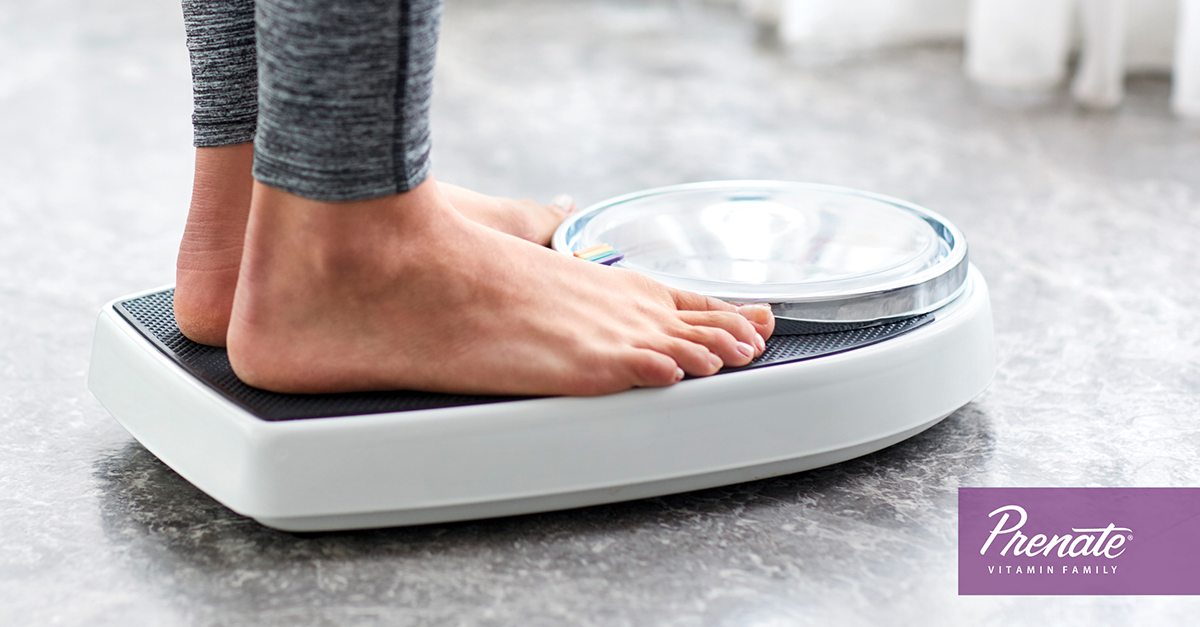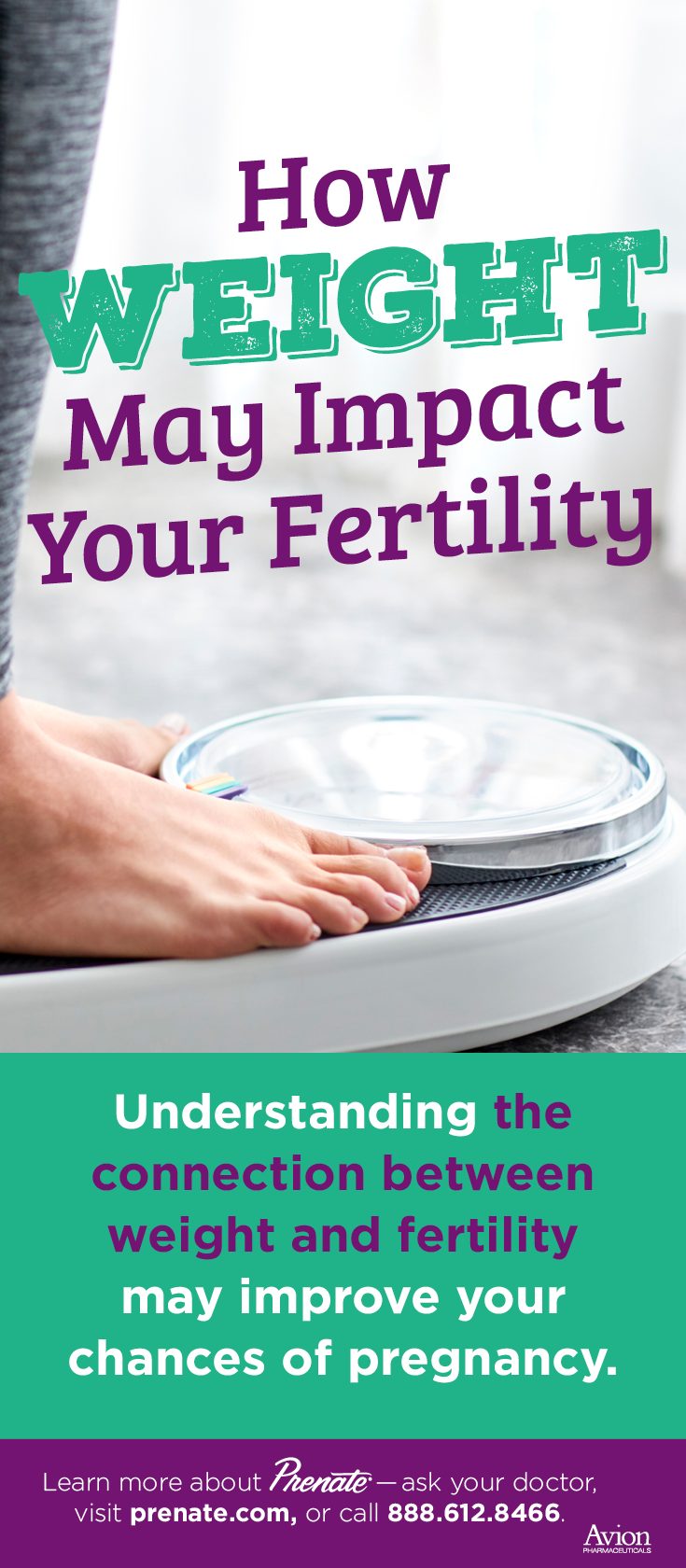How Weight May Affect Your Chances of Getting Pregnant
January 27, 2019
If you are trying to get pregnant, understanding how weight affects fertility may improve your chances of reaching your goal. Evaluating your overall health is a great place to start if you are planning for pregnancy. Talk with your doctor about your weight and any lifestyle changes you may need to make as you begin your pregnancy journey.
How being underweight may affect fertility
If you want to become pregnant and have a body mass index (BMI) of less than 18.5, you may encounter problems.1 Low BMI is one cause of irregular periods, which can make it hard to determine when you will ovulate.1 If you aren’t ovulating or not ovulating regularly, it may be much more difficult to become pregnant. If your low BMI is due to excessive exercise or inadequate nutrition, it’s important to be evaluated by a medical professional.
How being overweight may affect fertility
Being overweight can also affect your ability to become pregnant. As fat cells grow, they release estrogen. With too much estrogen in circulation, your body may stop ovulating.1 An excessive amount of estrogen in the body also may prevent fertility treatments such as in vitro fertilization (IVF) from working properly.1
Obesity isn’t a concern reserved for women, however. For men, being overweight or obese also can cause hormonal changes that reduce fertility.2
If you or your partner are overweight, discuss your options for losing weight with your doctor. A multitude of studies show a clear link between infertility and obesity in women.1 Reaching a healthy weight could help regulate your menstrual cycle and increase your chances of becoming pregnant.1
Talk with your health care team during your pre-pregnancy consultation about how your weight may affect your ability to get pregnant. Your doctor may have suggestions about how to reach your weight goals safely while you try to become pregnant. Every couple’s health situation is different, so it’s important to discuss your personal situation and make a plan with help from your doctor.
Supporting your weight goals throughout pre-pregnancy and beyond
Getting to a healthy weight could also have a positive effect on your pregnancy and the health of your baby. Women who are pregnant and obese have a higher risk of delivering a baby with heart defects, type 2 diabetes and neural tube defects such as spina bifida.1
Nutrition is an important part of overall health and well-being at every stage of your journey, from pre-pregnancy to breastfeeding. A daily prenatal vitamin can help you meet nutritional goals as you work toward reaching your ideal weight and throughout the time that you are trying to become pregnant.
Folic acid is especially important for women who are trying to become pregnant. Since neural tube development and closure is completed by 28 days (four weeks) after conception, it’s crucial for women who are trying to become pregnant to build reserves of this important vitamin.3
Each nutritional supplement from the Prenate® Vitamin Family meets or exceeds the Centers for Disease Control and Prevention’s recommendations for folic acid4 in addition to providing marine-based DHA to support the overall health of both moms and babies. Talk with your doctor about whether a prescription prenatal vitamin from the Prenate® Vitamin Family may be right for you.
You Are About To Leave This Website
By clicking continue, this link will take you to a website to which Alora Pharmaceuticals Policies & Terms of Use do not apply. Alora and its subsidiaries do not control the content or accuracy of third-party websites and assume no responsibility for their use.














